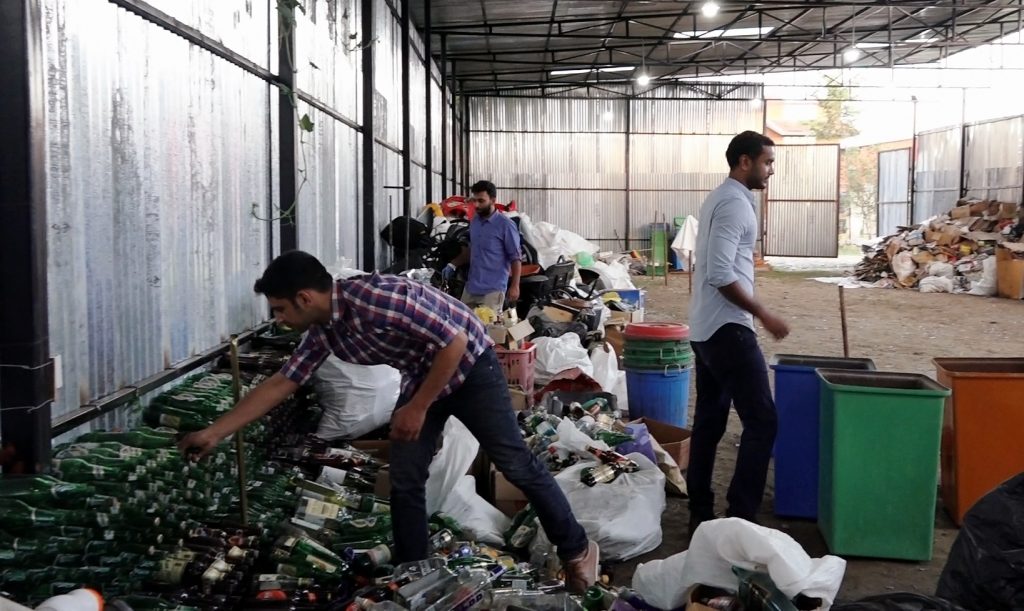
There are bright people who thought of managing waste of Kathmandu and making business of it. Doko Recyclers is a solid waste management company. What does the company do?
Doko recyclers receive waste from business houses and households, segregate them into three segments: Paper, plastic and glass wastes. The segregation is done in their work site, Thimi in Bhaktapur. After that, it is sold in relevant factories, manufacturing units for recycling and reuse.
A statistical finding of ADB (Asian Development Bank) in 2013 reports, on average an individual in Kathmandu generates 317 grams of solid waste from their everyday utility consumption. This accounts to 525,000 tons of solid waste in a year in Kathmandu.
So, what’s the great deal? That what waste collectors do all over Kathmandu?
Yes, there is no great deal. The greatest achievement of doko recyclers lies in establishing a sustainable business model of solid waste management business in Nepal.
The business was started by three youths Kushal Harzani is a post graduate in development economics, Raguvendra Mahato holds an MBA degree in Strategy & Technology Management and Runit Sariya, a computer engineering graduate. Next, big deal is the three urban youths setting an exemplary benchmark to starting a business in Nepal, investing in Nepal and staying in Nepal.
These three youths have awakened the feeling among thousands of other caliber youths that it is high time, a serious alternate sector has to look after the waste of Kathmandu. Else, solid waste is drowning the city.
And, how does this business generate revenue, when they are not selling any product?
Doko Recyclers have over 50 business houses as their client who pay the membership fee of Rs.2000 to Rs.2500 to get rid of their wastes.
Household clients do not need to become a members. Instead, you just give a call to the Doko recyclers. They come to your place, weight your wastes and you get paid from them to collect your waste. You don’t pay anything, you get money in return.
The additional benefit of membership of Doko recyclers is that you get access to transparently view where your waste is going, how much cash its generating and where it is being processed. This gives the clients the sense of ownership.
Next, when you sell the wastes from clients to factories or any recycling units, Doko charges amount to the factories, which is the profit. For example: You buy waste from a business house at Rs.8 per kg and sell it to factories at Rs.10, the additional Rs.2 is the revenue for Doko.
Further, Doko also has its own designed dustbins and waste disposal utilities that are purchased by their clients.
Out of the wastes collected from clients, 10% of the waste is not reusable. There is no other solution than burning them out. This 10% is the loss in terms of finances and well as the ecological objective the company carries. The waste management company has employed 15 people for running the operational activities.
To read in Nepali: https://www.hamrokatha.com/2017/10/12/2483.html
Originally published at www.hamrokatha.com


